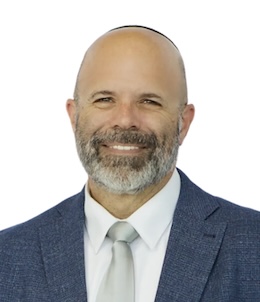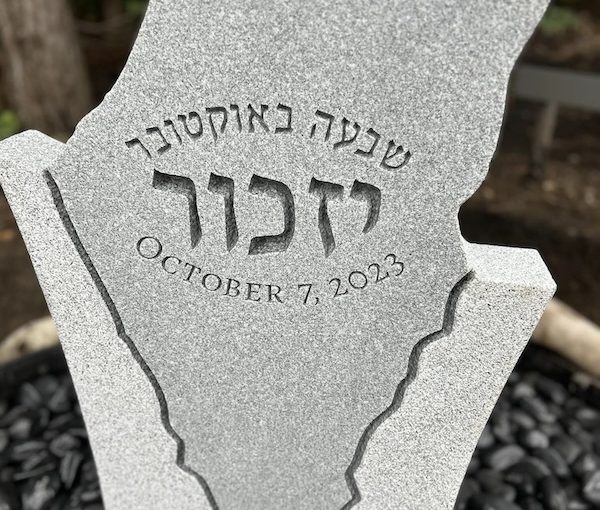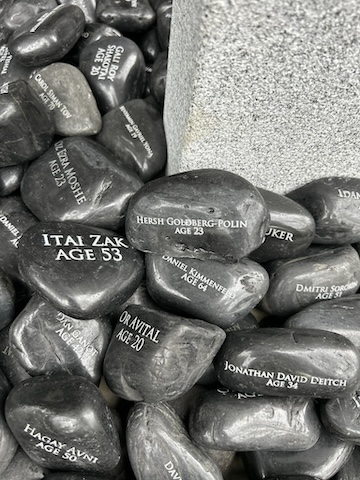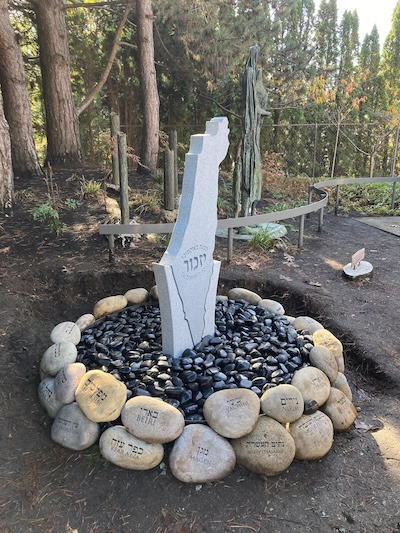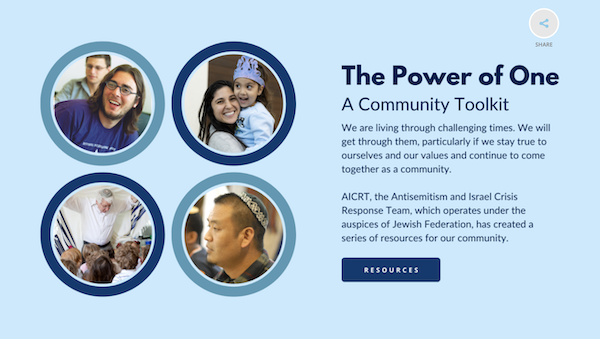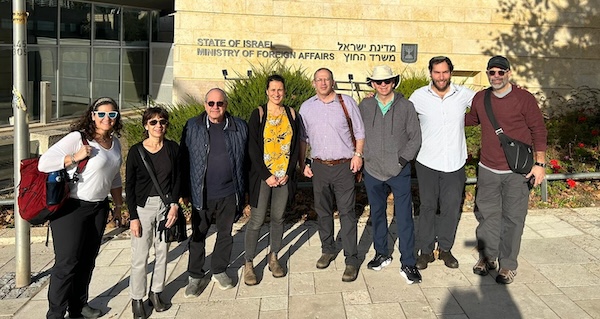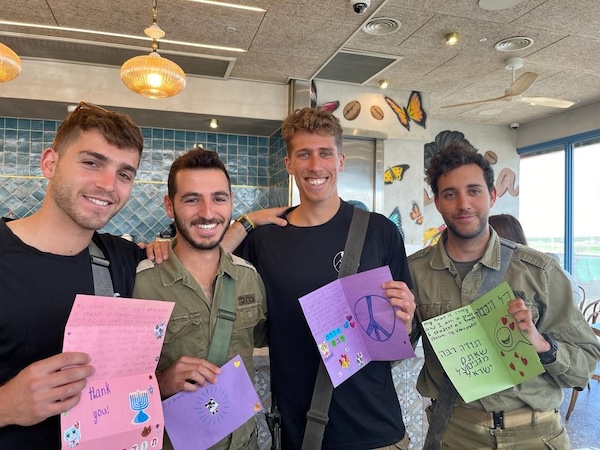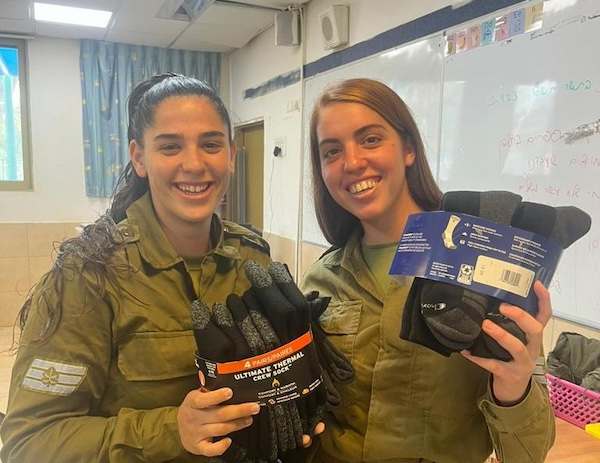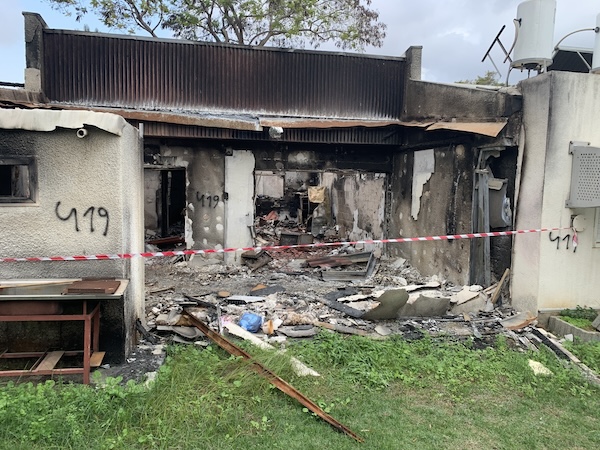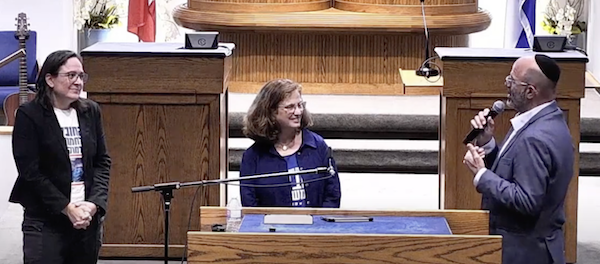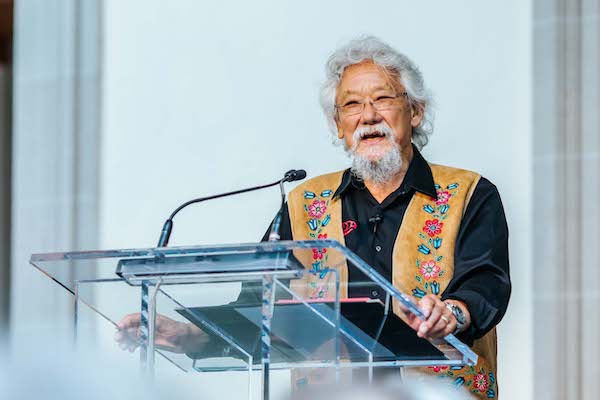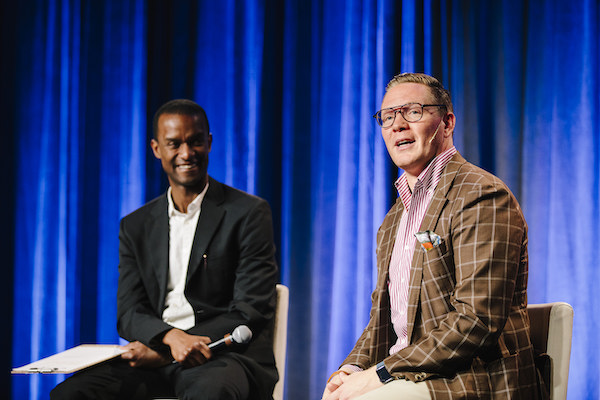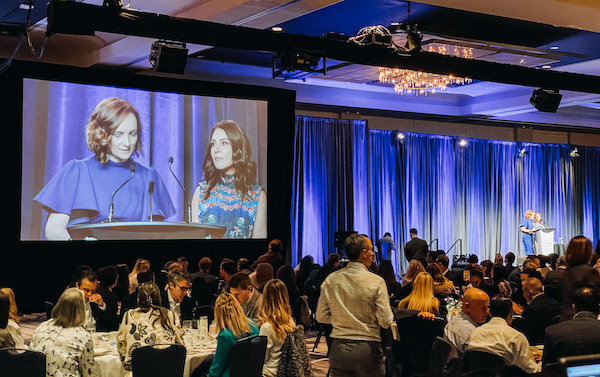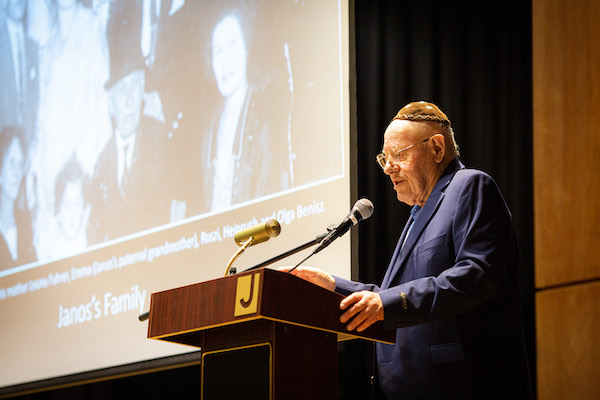Margaux Wosk, left, receives a Community Award from BC Lt.-Gov. Wendy Cocchia (photo from BC Achievement Foundation / Don Craig, photographer)
On May 1, Premier David Eby and Walter Pela, chair of the BC Achievement Foundation, named the recipients of the 22nd annual Community Award. The program, presented by BC Achievement – an independent foundation that honours excellence and inspires achievement throughout the province – recognizes extraordinary British Columbians who build better, stronger and more engaged communities. This year’s recipients included Jewish community member Margaux Wosk.
Wosk is an advocate, artist, designer and entrepreneur who champions disability justice and neurodivergent inclusion.
As president of BC People First, they provide leadership to elevate disabled voices and advocate for meaningful change across the province. Their work breaks down barriers, fosters pride and amplifies underrepresented perspectives through creativity, advocacy and education.
Through their business, Retrophiliac, Wosk designs communication tools and products by and for disabled, LGBTQIA2+ and neurodivergent individuals – empowering others to express themselves, reduce stigma and build community. They also founded the We Belong market, which highlighted neurodivergent and disabled entrepreneurs, and were featured on AMI’s Our Community episode for their advocacy and small business endeavours.
An emerging leader, Wosk spoke on Parliament Hill at the Disability Without Poverty rally and has collaborated with People First of Canada, McMaster University and Curiko on accessibility and small business development. Their artwork – featured in York University’s Mental Health Literacy Guide for Autism, to which they also contributed – reflects their commitment to advocacy through creativity. Several of their products are available from the Museum of Vancouver on their open MOV platform.
“The recipients of this year’s Community Award remind us that the strength of British Columbia lies in the compassion, creativity and commitment of its people,” said Eby. “Whether they’re leading grassroots initiatives or mentoring future changemakers, these individuals exemplify the power of community and the impact of selfless service. Their efforts uplift us all and set a powerful example for what we can achieve together.”
“This year’s program shines a spotlight on emerging leaders alongside long-standing changemakers,” said Pela. “Each recipient demonstrates what’s possible when individuals step up with purpose and heart. Their contributions strengthen our communities and remind us that leadership isn’t defined by title or age – it’s defined by impact, generosity and vision.”
The Community Award recipients are selected by an independent jury panel, whose 2025 members include Mayor Suzan Hewat of Kaslo, Mayor Sarrah Storey of Fraser Lake, and past recipients Herman Ho of Vancouver, Meeka Morgan of Ashcroft and Upkar Singh Tatlay of Surrey.
This year’s award recipients were recognized in a formal presentation ceremony held in Victoria on May 7 in the presence of BC Lt.-Gov. Wendy Cocchia.
Each awardee will receive a medallion designed by Robert Davidson. They will also be celebrated through the online campaign #shinethelightbc, to commemorate their inspirational achievements positively impacting British Columbians.
For more information about the BC Achievement Foundation or Community Award program, visit bcachievement.com.
* * *
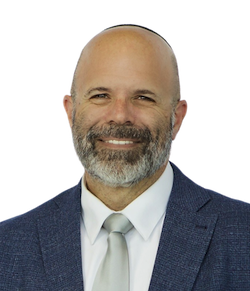
Rabbi Dan Moskovitz was honoured with the doctor of Jewish nonprofit management, honoris causa, from Hebrew Union College at its 2025 Graduation Ceremony in Los Angeles.
Moskovitz has served as senior rabbi of Temple Sholom since July 2013. Before joining Temple Sholom, he was associate rabbi at Temple Judea in Los Angeles for 13 years. He is also a past chair of the Reform Rabbis of Canada and was on the steering committee for Canadian Reform Judaism. Moskovitz is the author of numerous articles and publications, including The Men’s Seder (MRJ Press), an experiential journey through the Passover seder for Jewish men.
“As we continue our celebration of both emerging and established leaders through this season of ordination and graduation, we take special pride in awarding honorary degrees to graduates whose professional journeys exemplify our mission and values,” said Dr. Andrew Rehfeld, president of Hebrew Union College. “Through their vision, service and enduring impact, they define how bold leadership can shape a vibrant Jewish future.”
* * *
The fifth edition of the Western Canada Jewish Book Awards, presented by the Cherie Smith JCC Jewish Book Festival in Vancouver, took place May 13 at the Jewish Community Centre of Greater Vancouver. There were winners in six awards categories.
Helen Pinsky presented the Nancy Richler Memorial Prize for Fiction to Dave Margoshes for his novel A Simple Carpenter. Set in Middle Eastern “Holy Land” in the early 1980s, against the backdrop of the civil war in neighbouring Lebanon, the protagonist is a Christ-like character trying to live a low-key life in Israel/Palestine. Part biblical fable, part magic realism and part thriller, A Simple Carpenter is a meditation on memory and identity, religious faith and doubt, the yearning for a messiah, and the perennially tangled, fraught state of Arab-Israeli relations.
Bernard Pinsky presented Prof. Richard Menkis with the Pinsky Givon Family Prize for In a “Land of Hope”: Documents on the Canadian Jewish Experience, 1627-1923, which Menkis edited with Prof. Pierre Anctil. The collection prioritizes diverse Jewish voices that express the multiple realities of the Canadian Jewish experience. Organized chronologically, from the arrival of the first Jewish migrants to New France, to Jewish Canadian experiences during and shortly after the First World War, this volume includes sources never before published.
Robert Matas presented the Cindy Roadburg Memorial Prize for memoir/biography to former federal cabinet minister and senator Jack Austin who wrote, with Edie Austin, Unlikely Insider: A West Coast Advocate in Ottawa. The memoir is a reminder of the value of public service as a force for economic progress, social justice and nation-building. As a British Columbian, Austin worked to ensure that BC’s perspectives and interests mattered in Ottawa; as someone who came from a disadvantaged background, he is sensitive to the need to make the country a place of fairness and opportunity for all.
The Diamond Foundation Prize for writing for children and youth was presented by Daniella Abramowich to Ellen Schwartz for Schwartz’s Friends to the Rescue, illustrated by Alison Mutton. Inspired by a true story, and told in two different time periods, the book takes place in Fossa, Italy, a small mountain village that offered refuge to Jews during the Holocaust. When the village suffers a devastating earthquake 65 years later, the Jewish refugees whom the town had helped travel to Fossa to return the favour.
Rhea Tregebov received the Betty Averbach Foundation Prize for poetry from Leanne Averbach for the book Talking to Strangers. In it, Tregebov mourns, praises, prays, regrets, summons, celebrates and bears witness with artistry and tenderness. Talking to Strangers was also awarded the Canadian Jewish Literary Award for poetry in 2024.
The Kahn Foundation Prize for writing on the Holocaust was presented by Saul Kahn to Marie Doduck for her memoir A Childhood Unspoken. Mariette was only 5 years old when the Nazis invaded her hometown of Brussels, Belgium, in 1940. She and her siblings were scattered across the city and countryside, hiding with non-Jews and in convents and orphanages or working for the resistance. Mariette emerged from the war quick-thinking, independent and ready to start a new life in Canada. As she navigated to a new identity as Marie – an industrious and resourceful community member, mother and advocate for children’s rights – Mariette, the silent child, found her voice.
Jurors for the 2025 Western Canada Jewish Book Awards were Miranda Burgess, Susanna Egan, Elisabeth Kushner, Roger Nash, Norman Ravvin and Harriet Zaidman.
Daniella Givon, chair of the awards committee, introduced the evening and Dana Camil Hewitt, director of the JCC Jewish Book Festival, concluded the awards celebration.
* * *
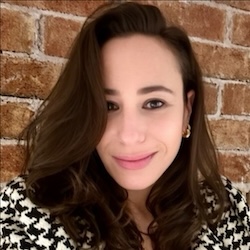
Jessica Kronis is the new director of the Jewish Community Foundation. She brings a wealth of experience from Toronto’s philanthropic sector and a deep commitment to mission-driven work. From her leadership at ACCESS Community Capital Fund to her role with Hillel at Florida International University and helping launch the Nova Exhibition in Toronto, Kronis has consistently built strong programs and meaningful connections.
The Jewish Community Foundation plays a vital role in building a strong, sustainable future for our community. Through endowments, legacy gifts and other forms of planned giving, it helps ensure support for community institutions and responds to emerging needs. The foundation closed the fiscal year with $108 million in assets, surpassing the $100 million milestone. This achievement reflects both the trust our fundholders place in the foundation and the oversight of its investment committee, whose guidance has kept the investment strategy focused, effective and responsibly managed.
* * *
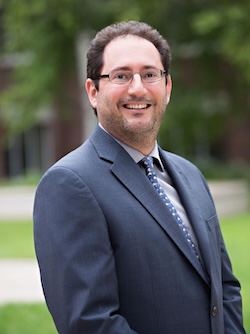
Dr. Siamak Boroomand has been appointed as King David High School’s new deputy head of school. He will be taking over the position from Alex Monchamp, KDHS’s deputy head of school for the past 24 years, who is moving on to new ventures.
Boroomand brings more than 20 years of experience as an educator and leader in Canadian Accredited Independent Schools (CAIS) institutions across Canada. A proud British Columbian, he graduated from St. George’s School and earned his teaching certification from Simon Fraser University. He began his career teaching chemistry and math at Southridge and Meadowridge schools before relocating to Ontario.
For the past 15 years, Boroomand has been a leader at Branksome Hall, an all-girls International Baccalaureate school in Toronto. There, he served as a science and math teacher before moving into administrative roles, including assistant head of middle school, assistant head of operations and, most recently, assistant head of grades 9-10, where he supported 220 students and their families.
Boroomand will be moving back to Vancouver with his wife, Bonnee, son Aaron and daughter Kayla. He steps into his role at KDHS in August.
* * *
The Ronald S. Roadburg Foundation has awarded a $350,000 multi-year grant to support the new USY (United Synagogue Youth) Lower Mainland Community Director initiative. This funding will subsidize the program’s growth through 2029 and aims to foster deep Jewish engagement for teens through enriching programming, mentorship and community involvement.
The initiative is a collaborative effort between multiple synagogues in a geographic area to serve teens. In the Lower Mainland, the three main participating Conservative congregations are Congregation Beth Israel (Vancouver), Congregation Har El (West Vancouver) and Beth Tikvah Congregation (Richmond). Launched in September 2024 with the hiring of Shayla Brewer as the Lower Mainland’s first community director, the program has already seen growth in local and international USY participation by teens.


